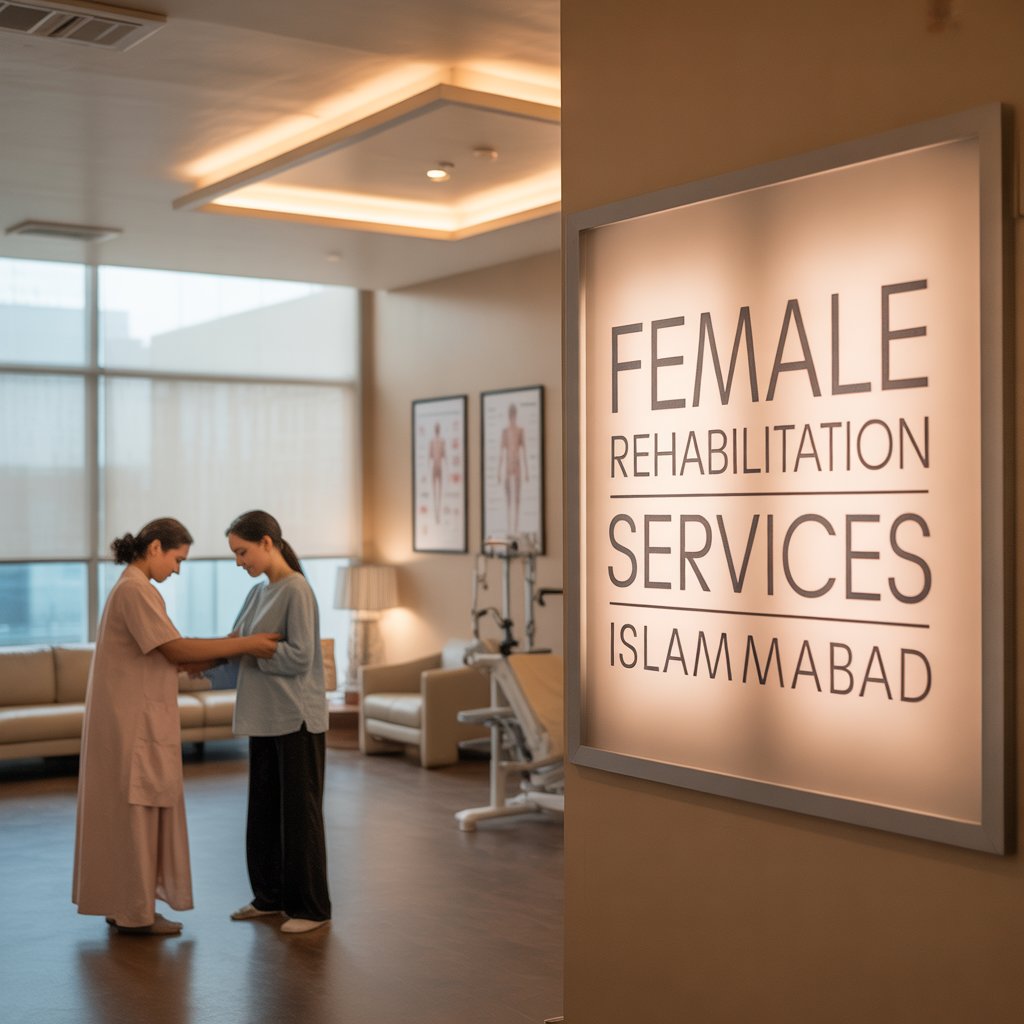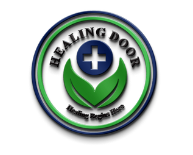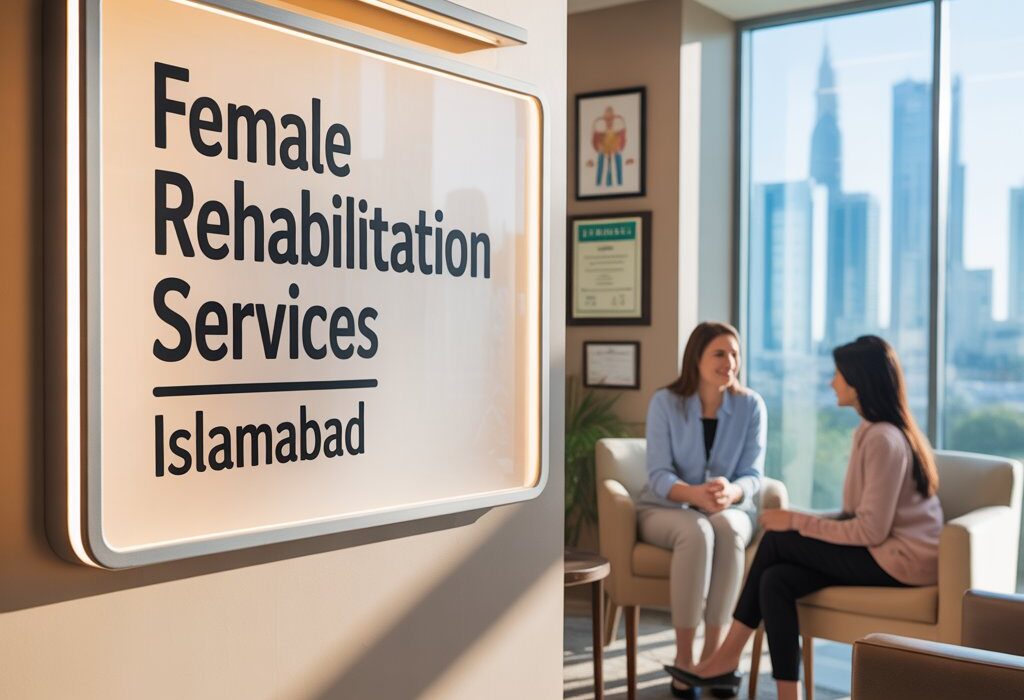A Guide to Female Rehabilitation Services in Islamabad
The journey toward recovery from addiction, mental health challenges, or trauma is profoundly personal and requires immense courage. For women, this path is often intertwined with unique societal pressures, distinct psychological needs, and roles as caregivers, which can create additional barriers to seeking help. Recognizing these specific challenges is the first step toward healing. This is where specialized Female rehabilitation services in Islamabad play a pivotal role. These dedicated programs provide a safe, confidential, and empathetic environment designed to address the holistic well-being of women, offering them a supportive space to reclaim their lives and build a foundation for a healthier future.
Why Gender-Specific Care is Essential for Women’s Recovery
The decision to seek help is a significant one, and the environment in which healing occurs can greatly influence its success. Gender-specific care is not about exclusion; rather, it is about creating a therapeutic space that acknowledges and addresses the distinct realities of women’s lives. Many women find it difficult to openly discuss sensitive issues—such as trauma, body image, motherhood, or domestic stress—in a mixed-gender setting. Furthermore, Female rehabilitation services in Islamabad are specifically structured to tackle issues like hormonal fluctuations, the stigma faced by women with substance use disorders, and the complex interplay between mental health and societal expectations. This tailored approach fosters a stronger sense of safety and community, which is a powerful catalyst for genuine, lasting recovery.
The Core Components of Comprehensive Women’s Rehab
A high-quality rehabilitation program for women extends beyond standard treatment models. It integrates a multifaceted approach that nurtures the mind, body, and spirit through several key pillars.
1. Trauma-Informed Care and Therapy
A cornerstone of effective Female rehabilitation services in Islamabad is the implementation of trauma-informed care. This approach recognizes that many women seeking treatment have a history of physical, emotional, or psychological trauma. Therapists are specially trained to create a environment of emotional safety, avoiding re-traumatization. Modalities like Cognitive Behavioral Therapy (CBT), Dialectical Behavior Therapy (DBT), and Eye Movement Desensitization and Reprocessing (EMDR) are often used to help process traumatic memories and develop healthy coping mechanisms.
2. Mental Health and Dual Diagnosis Treatment
Addiction and mental health disorders frequently co-occur, a condition known as dual diagnosis. It is crucial that these issues are treated simultaneously for recovery to be sustainable. A comprehensive program will have psychiatric support to address conditions like depression, anxiety, PTSD, and eating disorders alongside substance abuse. This integrated treatment ensures that the root causes of dependency are addressed, not just the symptoms.
3. Life Skills and Relapse Prevention Training
Rebuilding a life in recovery requires practical tools. Rehabilitation centers focus on equipping women with essential life skills, including stress management, financial literacy, communication techniques, and vocational guidance. Relapse prevention planning is also a critical component, where women learn to identify their personal triggers, develop healthy routines, and create a robust support network to navigate challenges after they leave the structured environment of the facility.
4. Holistic Wellness Practices
Healing is not solely a psychological process. The best Female rehabilitation services in Islamabad incorporate holistic practices to promote overall well-being. This can include yoga and meditation for stress reduction and mindfulness, nutritional counseling to repair the physical damage of addiction, and art or music therapy to provide non-verbal outlets for expression and emotional release. These activities help women reconnect with their bodies and rediscover joy in healthy pursuits.

What to Look for in a Women’s Rehab Center in Islamabad
Choosing the right facility is one of the most important decisions you will make. Here are key factors to consider to ensure you select a center that aligns with your needs and values.
1. A Female-Specific Environment and Staff
The presence of a primarily female staff, including therapists, counselors, and medical professionals, can significantly enhance a client’s comfort level and willingness to engage fully in the therapeutic process. Look for a center that offers a physically separate and secure environment, providing a true sanctuary away from the pressures of daily life.
2. Accreditation and Qualified Professionals
Ensure the facility is licensed and its clinical team holds relevant certifications and extensive experience in treating women. The involvement of qualified psychiatrists, clinical psychologists, and certified addiction counselors is non-negotiable for providing evidence-based, effective care.
3. Family Involvement and Aftercare Supp
Addiction and mental health challenges affect the entire family system. A reputable program will offer family therapy sessions and educational workshops to help mend relationships and build a supportive home environment for when the client returns. Moreover, a strong aftercare program—including outpatient therapy, alumni groups, and sober living referrals—is essential for providing continued support and preventing relapse in the long term.
Taking the First Step Toward a New Beginning
Acknowledging the need for help and reaching out for it is an act of profound strength. If you or a woman you love is struggling, know that recovery is not only possible but within reach. By seeking out specialized Female rehabilitation services in Islamabad, you are choosing a path of dignity, understanding, and comprehensive healing. These programs are designed to empower women with the confidence, skills, and self-compassion needed to not only recover but to thrive. The journey may be challenging, but it leads to a future defined not by struggle, but by hope, health, and renewed purpose.
Frequently Asked Questions (FAQs)
1. How is privacy and confidentiality maintained?
Reputable centers prioritize client confidentiality as a core ethical principle. Your stay and participation in the program are completely private, with strict protocols in place to ensure that no personal information is shared without your explicit written consent.
2. Can I stay connected with my family during treatment?
Yes, most programs encourage healthy family involvement as it is vital for recovery. However, there is usually a structured communication schedule, especially during the initial detox and stabilization phase, to ensure you can focus fully on your healing without external stressors.
3. What if I have a co-occurring mental health condition?
This is very common and is a primary focus of quality treatment. A dual diagnosis approach ensures that both your addiction and mental health condition (like depression or anxiety) are treated simultaneously by an integrated team of specialists.
4. What types of addiction do you treat?
Comprehensive women’s rehab centers typically treat a wide range of substance use disorders (including alcohol, prescription drugs, and illicit substances) as well as behavioral addictions, often in conjunction with underlying mental health issues.
5. What happens after I complete the residential program?
A robust aftercare plan is created for you before you discharge. This typically includes ongoing outpatient therapy, support group meetings, and check-ins with a case manager to ensure a smooth transition back to daily life and provide continuous support for your long-term sobriety.




